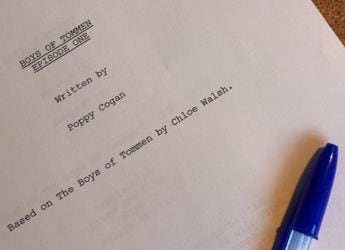- Home
- Social networking
- Social networking News
- Facebook Removes French, Russian Accounts Active in Africa Over Covert Disinformation Campaign
Facebook Removes French, Russian Accounts Active in Africa Over Covert Disinformation Campaign
Facebook said it took down hundreds of accounts and groups linked to France and Russia accused of “coordinated inauthentic behaviour” in Central African Republic.

The dueling French and Russian troll operations tried to counter one another with Facebook posts
Individuals linked to Russia and the French military used fake Facebook and Instagram accounts to wage a covert disinformation campaign in the Central African Republic ahead of elections there this month, Facebook announced this week.
Facebook said it took down hundreds of accounts and groups linked to France and Russia accused of “coordinated inauthentic behaviour” in the CAR as well as other countries in Africa and the Middle East.
While accounts traced to Russia have been repeatedly accused of such activity, Facebook told The Associated Press this is the first time it has taken action against a network tied to individuals associated with a Western government. It has taken action against networks tied to political parties in the West in the past.
Facebook's move came ahead of elections December 27 in the Central African Republic, which Facebook identified as the main target of the disinformation, at a time when both France and Russia have been jockeying for influence in the region.
The company said its investigators traced the French accounts to “individuals associated with French military.” However, Nathaniel Gleicher, Facebook's head of security policy, said in a statement that “we did not see evidence that the French military itself directed the activity.”
Graphika, a New York City social media analysis firm that investigated the accounts with Facebook, said it found no evidence of direct institutional involvement by the French government or military.
The French military said in a statement Thursday to The Associated Press that it “firmly condemns” such disinformation efforts and is working alongside the UN and European partners to bring peace to the CAR.
“We are examining the results (of the Facebook-Graphika investigation), but at this stage, we're not able to confirm any responsibility. There are many stakeholders in this struggle, public and civilian, which makes it difficult to assess the situation clearly,” the statement said.
France was once the colonial power in the Central African Republic and nearby countries that Facebook also identified as being targeted. Russian companies also have growing interests in the region.
Facebook said it removed the networks for “violating our policy against foreign or government interference which is coordinated inauthentic behavior (CIB) on behalf of a foreign or government entity.”
Russian officials have not publicly commented.
Facebook said its investigation found links to individuals associated with Russia's Internet Research Agency, a so-called troll farm accused of meddling in the 2016 US. election, and Russian businessman Yevgeny Prigozhin, who has ties to the Kremlin and has been indicted by the US Justice Department. Prigozhin has repeatedly denied any connections to the troll farm and its activities.
The US Treasury Department has sanctioned mining businesses and employees tied to Prigozhin in the Central African Republic and claims his business activities there are coordinated with the Russian government. In a statement published this week on Russian social networks in response to media queries, Prigozhin claimed that Facebook is a tool of US intelligence agencies and “a group of oligarchs” serving to advance American interests around the world.
Facebook said it has taken down the network of accounts that tried to meddle in the Central African Republic, which were among almost 500 inauthentic Facebook and Instagram accounts, pages and groups that targeted users in several African and the Middle Eastern nations with posts about COVID-19, politics or the military.
“While we've seen influence operations target the same regions in the past, this was the first time our team found two campaigns, from France and Russia, actively engage with one another,” Facebook said in its report on the networks.
In the Central African Republic, the dueling French and Russian troll operations tried to counter one another with Facebook posts, and at some points tried to expose the other, according to a report by Graphika.
The Russian operation, primarily conducted in French, posted pro-Kremlin videos and applauded the Central African Republic's incumbent President Faustin-Archange Touadéra, according to Graphika.
The French operation, meanwhile, strayed away from talking about upcoming elections in posts. It began as early as May 2018, focusing on the Central African Republic and security in Mali.
One Russian page that promoted Touadéra had 50,000 followers. Meanwhile, the largest following a French group amassed in the Central African Republic was 34 followers.
“Facebook's takedown marks a rare exposure of rival operations from two different countries going head to head for influence over a third country,” Graphika said in a statement.
Is MacBook Air M1 the portable beast of a laptop that you always wanted? We discussed this on Orbital, our weekly technology podcast, which you can subscribe to via Apple Podcasts, Google Podcasts, or RSS, download the episode, or just hit the play button below.
Get your daily dose of tech news, reviews, and insights, in under 80 characters on Gadgets 360 Turbo. Connect with fellow tech lovers on our Forum. Follow us on X, Facebook, WhatsApp, Threads and Google News for instant updates. Catch all the action on our YouTube channel.
Related Stories
- Samsung Galaxy Unpacked 2026
- iPhone 17 Pro Max
- ChatGPT
- iOS 26
- Laptop Under 50000
- Smartwatch Under 10000
- Apple Vision Pro
- Oneplus 12
- OnePlus Nord CE 3 Lite 5G
- iPhone 13
- Xiaomi 14 Pro
- Oppo Find N3
- Tecno Spark Go (2023)
- Realme V30
- Best Phones Under 25000
- Samsung Galaxy S24 Series
- Cryptocurrency
- iQoo 12
- Samsung Galaxy S24 Ultra
- Giottus
- Samsung Galaxy Z Flip 5
- Apple 'Scary Fast'
- Housefull 5
- GoPro Hero 12 Black Review
- Invincible Season 2
- JioGlass
- HD Ready TV
- Latest Mobile Phones
- Compare Phones
- Lava Yuva Star 3
- Honor X6d
- OPPO K14x 5G
- Samsung Galaxy F70e 5G
- iQOO 15 Ultra
- OPPO A6v 5G
- OPPO A6i+ 5G
- Realme 16 5G
- Asus Vivobook 16 (M1605NAQ)
- Asus Vivobook 15 (2026)
- Brave Ark 2-in-1
- Black Shark Gaming Tablet
- boAt Chrome Iris
- HMD Watch P1
- Haier H5E Series
- Acerpure Nitro Z Series 100-inch QLED TV
- Asus ROG Ally
- Nintendo Switch Lite
- Haier 1.6 Ton 5 Star Inverter Split AC (HSU19G-MZAID5BN-INV)
- Haier 1.6 Ton 5 Star Inverter Split AC (HSU19G-MZAIM5BN-INV)







![[Partner Content] OPPO Reno15 Series: AI Portrait Camera, Popout and First Compact Reno](https://www.gadgets360.com/static/mobile/images/spacer.png)









